Cosy Spaces
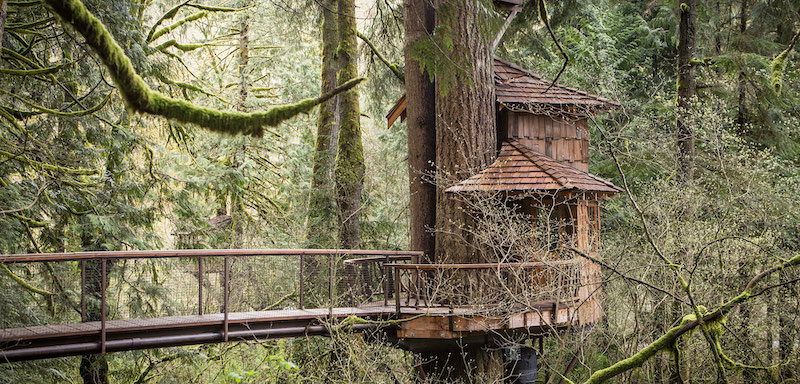
Well, my weekly update streak lasted for a little over two months. Posting an update every week may have been... hm, a bit of hubris on my part. I'm glad I started with that constraint though. It really helped get the ball rolling and to build up some momentum.
I'm moving to an update cadence a bit more aligned with the natural rhythm of what is happening in my life. Which means—GOOD NEWS—I have something I want to update you on!
Look alive people!
Recalls
Recalls are a major Prometheus feature. They may look humble from the outside but trust me, this was not a trivial implementation. It was hard for a few reasons:
- Dropdowns are inherently evil (but necessary)
- The design had some issues that only became apparent during implementation
- The UI technology (Vue) has a way of doing things that made figuring out how to implement this feature an interesting puzzle
My initial goal for the UX of Prometheus was to have every element of the interface visible at all times. This meant no popups, layovers, flyouts, modal dialogs, or drop-downs. This was (and is) a fantastic goal and continues to drive the design of the application, however, trying to work within that constraint while also presenting the user with a list of search results would have resulted in something very strange for people to use. Sometimes, you have to just go with what people know. And I have to say, now that it's mostly implemented, it is a real joy to use.
How about some pretty pictures?
Below you can see what it looks like to create a new recall. Recalls in Prometheus are basically just labels, or tags, for a specific moment in time. That moment could be someone's birth, a significant historical event, your election for a Goetic operation, or any other interesting astrological moment.
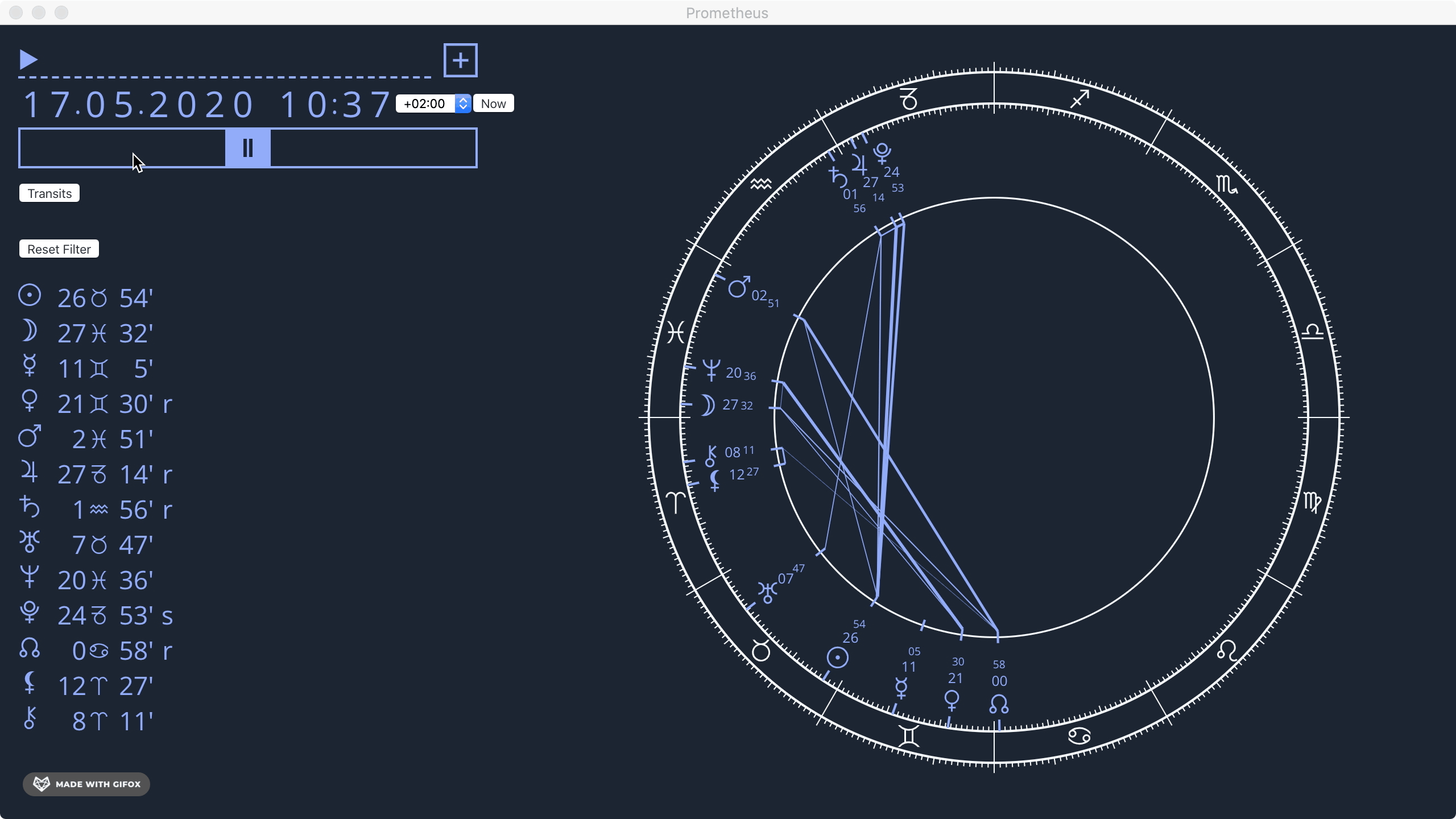
Once a recall has been created, you can instantly find it and restore the chart to that time. You can either just scroll through the recalls you have saved, or you can start typing and Prometheus will search for any recalls that match.
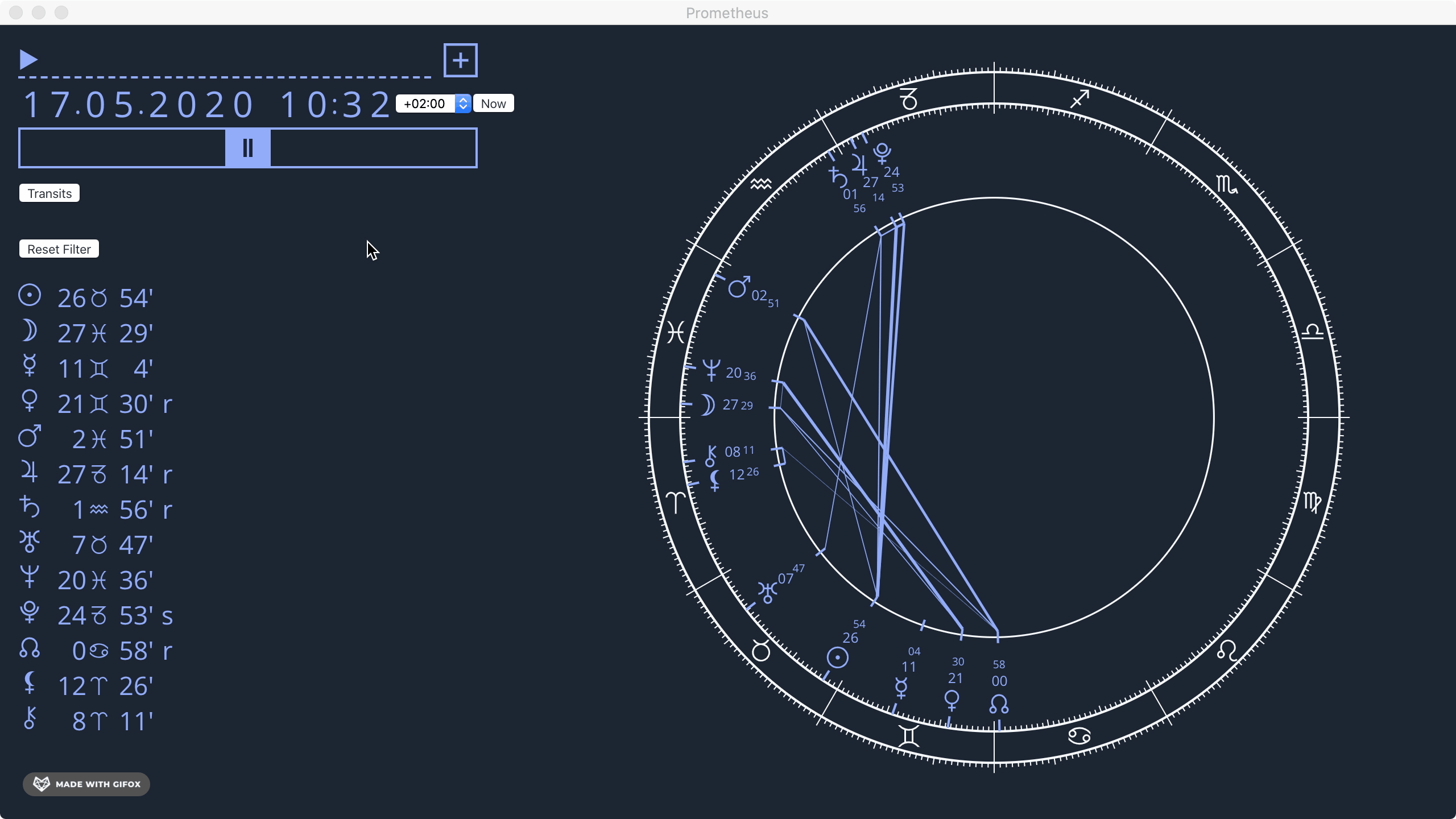
While there is currently a button that says "Transits" (which will be replaced soon) Prometheus actually makes no assumptions about natal, transit, or anything else. It simply has two groups of bodies which can be compared on the wheel for two moments in time. This means you can look at someone's transits by recalling them in the first group and then setting the second group to the current position of the planets. However, you can just as easily have either group reflect any moment in time. Below is an example of comparing my birth chart with my husband's.
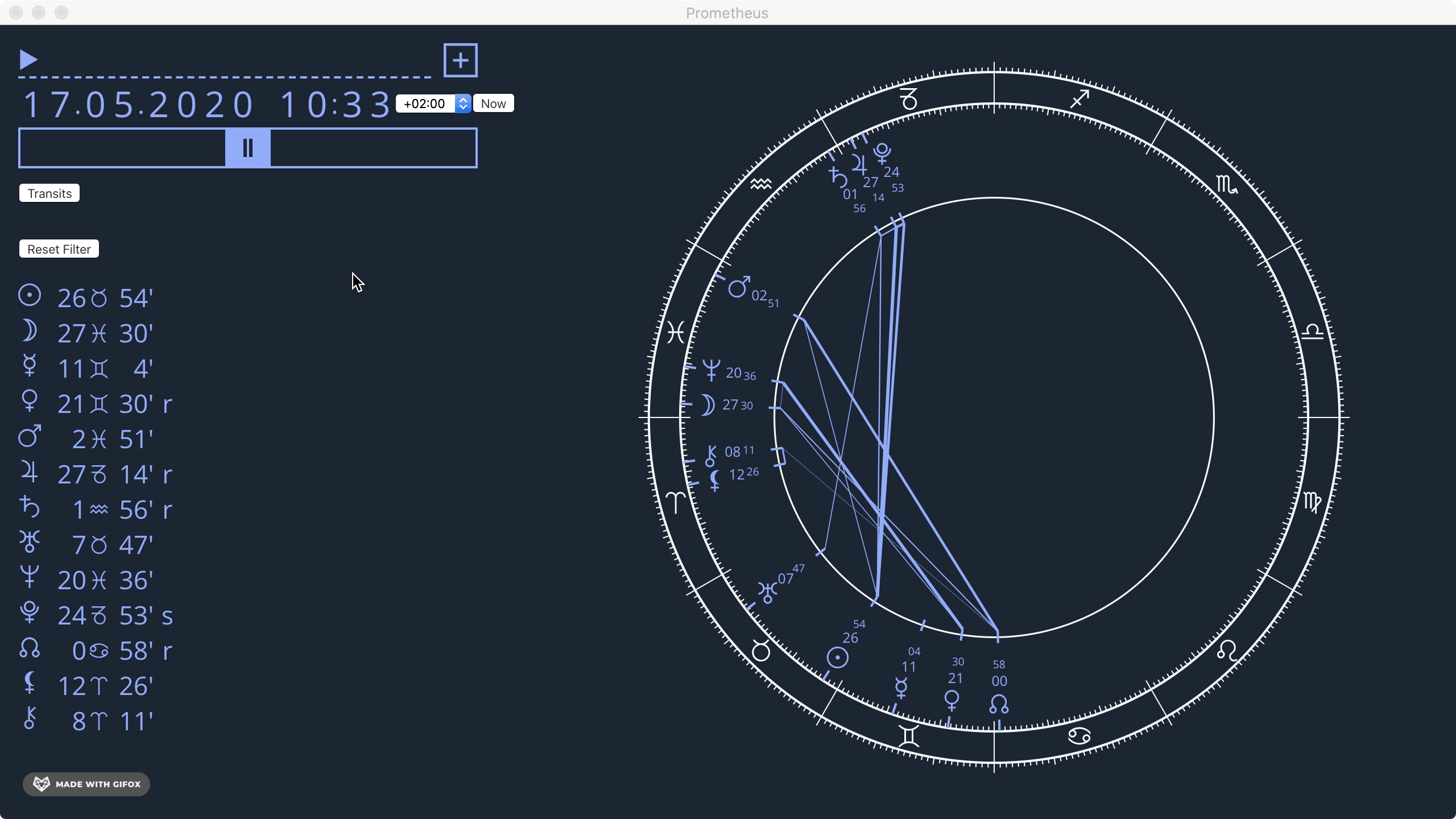
How cool is that?
Sadly, recalls aren't finished yet. The drop-down needs to support lists that exceed the window height and the entire feature needs to support key bindings. It's really close though.
Prometheus Release Status
Recalls are the last major feature for the initial release. There are still 13 bugs, improvements and release tasks (according to my kanban board) that need to happen before it's ready, but this was a major milestone. Getting recalls implemented means I'm now on the downslope to release. That feels awesome. I want to get Prometheus in people's hands as soon as possible and start getting real feedback.
With that in mind, it's looking like Prometheus will have a limited-availability release some time in the early summer. I can't fucking wait.
Constraint or Cozy?
I'm currently enamored with the PICO-8, which is a virtual gaming console in the style of 8-bit game consoles from my childhood. The PICO-8 provides an environment where people can create all kinds of amazing content (including video games) within a tight set of carefully considered constraints.
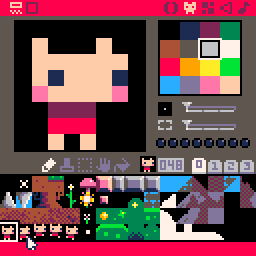
The creator of PICO-8 did a talk entitled PICO-8 and the Search for Cosy Design Spaces where he talks about (among other things) how he chose the constraints for the system. What really struck me about his framing was the focus on the space created within the constraints, rather than on the constraints themselves. The space created within the constraints can (and should) be comforting, inspiring, and safe—cozy. I don't think he ever actually used the word 'constraint' at all (though I could be wrong, I only watched it once).
When we talk about our living spaces we don't (usually) refer to the walls as constraints. Walls protect us from the outside, they keep us warm, they provide a space to hang art, and they define the boundary of the space we call home. Can cozy exist without walls?
I was thinking about this in relation to our current quarantine times, of course, but also in relation to magic. If I had to use a single word to describe ritual spaces I would probably use 'sacred' rather than 'cozy', however, thinking about magic as cozy is interesting. In a way, magic (as a system of interfacing with the numinous) is inherently a set of constraints that make it comforting, inspiring, and safe to engage with things beyond comprehension.
The global pandemic has compressed our lives into smaller spaces with some harsh constraints. Instead of focusing on the constraints, let's focus instead on the opportunity of the space created by those constraints. Let's use that space to do our best art.
And let's make it hella hella cozy.
Mosaic
Urania
Georatio